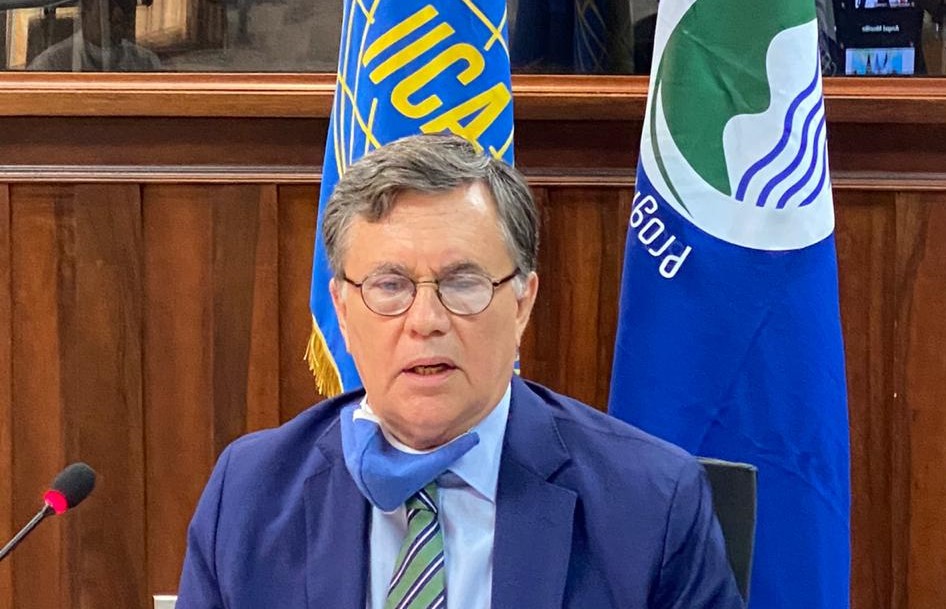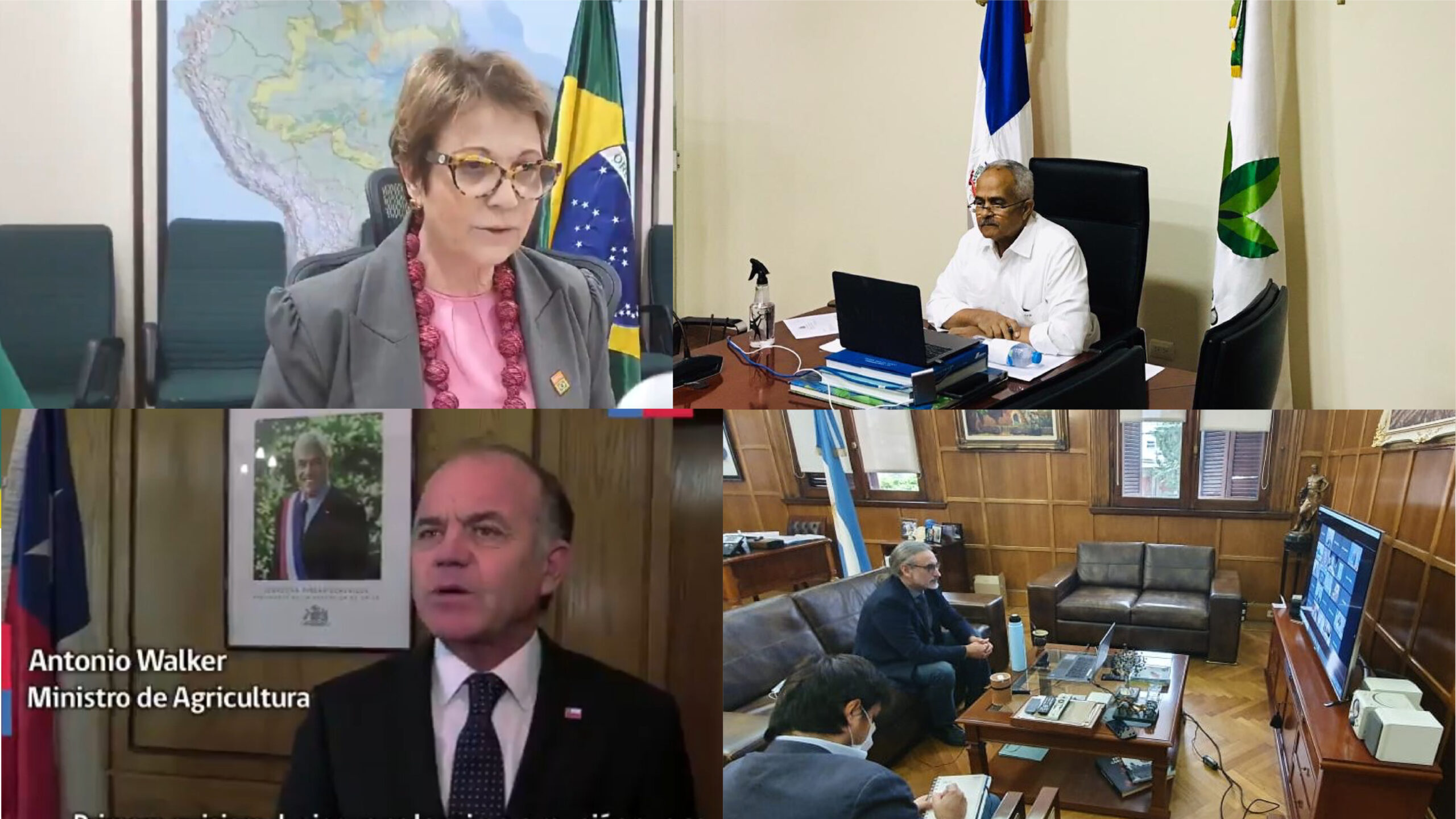Enhancing cooperation, strengthening family farming and facilitating trade were the main strategies discussed for overcoming the pandemic. IICA and FAO presided over the meeting.

San Jose, 27 April 2020 (IICA). – Strengthening multilateral cooperation, reinforcing the key role of family farming and facilitating trade were some of the key strategies discussed for overcoming Covid-19; the ministers and secretaries of Agriculture of 34 countries of the Americas also assessed coordination and consultation mechanisms to strengthen food security and agricultural activity.
The Inter-American Institute for Cooperation on Agriculture (IICA) and the Food and Agriculture Organization of the United Nations (FAO) presided over the meeting held on April 23, which was convened by the Minister of Agriculture of Chile, Antonio Walker.
Osmar Benítez, Minister of Agriculture of the Dominican Republic and Chair of the Inter-American Board of Agriculture (IABA); Audley Shaw, Minister of Jamaica and Chair of the FAO Regional Conference for Latin America and the Caribbean; and Minister Walker led the discussions.
During the meeting, Minister Osmar Benitez highlighted the importance of fostering dialogue and cooperation between nations across the continent. The representative of Canada, Aaron Fowler, stressed the need to address the emergency generated by the pandemic in a collaborative manner, urging countries not to ignore the medium- and long-term agenda they had agreed upon, which requires agreements and cooperation in matters related to agrifood health, science and technology.
On the other hand, Ted McKinney, Under Secretary of Agriculture for Trade and Foreign Agricultural Affairs at the U.S. Department of Agriculture, remarked that his country “has an ample supply of food and stands ready to assist other countries, as necessary.” He added that “it was good” for countries to “jointly address” the current situation.
Tereza Cristina, Minister of Agriculture, Livestock and Supply of Brazil, emphasized the post-crisis recovery process, noting that “agrifood chains will play a crucial role in maintaining employment and will serve as a driving force” to resume activity levels. She also underscored the importance of family farming.
The Minister of Agriculture, Livestock and Fisheries of Argentina, Luis Basterra, and the Secretary of Agriculture and Livestock of Honduras, Mauricio Guevara, highlighted the importance of family farming as well as the need to strengthen dialogue and coordination between countries to overcome the pandemic.
The Director General of IICA, Manuel Otero, reiterated the hemispheric organization’s commitment to strengthening its role as a bridge between its member countries, international cooperation agencies, the academic sector, research centers and think tanks. He also pointed out the need to develop consistent public policies to ensure that agriculture is recognized for what it is: a strategic sector.

“We must swing the pendulum in the right direction and recognize agriculture as a strategic sector that requires solid state policies; this is a duty that IICA will vigorously support. Agriculture is to be taken seriously,” he remarked.
The head of the specialized agency for agriculture and rural development also explained that more science, digital and biological technology, as well as innovation would be required to fully resolve food security issues.
“It is through public-private partnerships that we will thoroughly resolve food security issues. We must emphasize the importance of adopting a supranational approach, given that it will be much more difficult to solve our problems on our own. We need more science, technology and innovation; this will make our continent a lot stronger,” he stated.
During the videoconference, Otero indicated that, as part of the Institute’s efforts to support its Member States during the pandemic, he had held six subregional meetings with different ministers to listen to their needs and propose solutions.
On the other hand, Julio Berdegué, FAO Representative for Latin America and the Caribbean, underscored the importance of cooperation as a means for overcoming the effects of the pandemic.
Also in attendance at the meeting were regional authorities and experts from the Inter-American Development Bank (IDB), the Central American Bank for Economic Integration (CABEI), the Caribbean Agricultural Research and Development Institute (CARDI), the Caribbean Agricultural Health and Food Safety Agency (CAHFSA), the Development Bank of Latin America (CAF), the Inter-American Commission of Women (CIM), the Economic Commission for Latin America and the Caribbean (ECLAC), the Caribbean Community (CARICOM), the International Fund for Agricultural Development (IFAD), the World Organization for Animal Health (OIE), the International Regional Organization for Plant and Animal Health (OIRSA) and the World Food Programme (WFP).
More information:
Institutional Communication Division
comunicacion.institucional@iica.int











